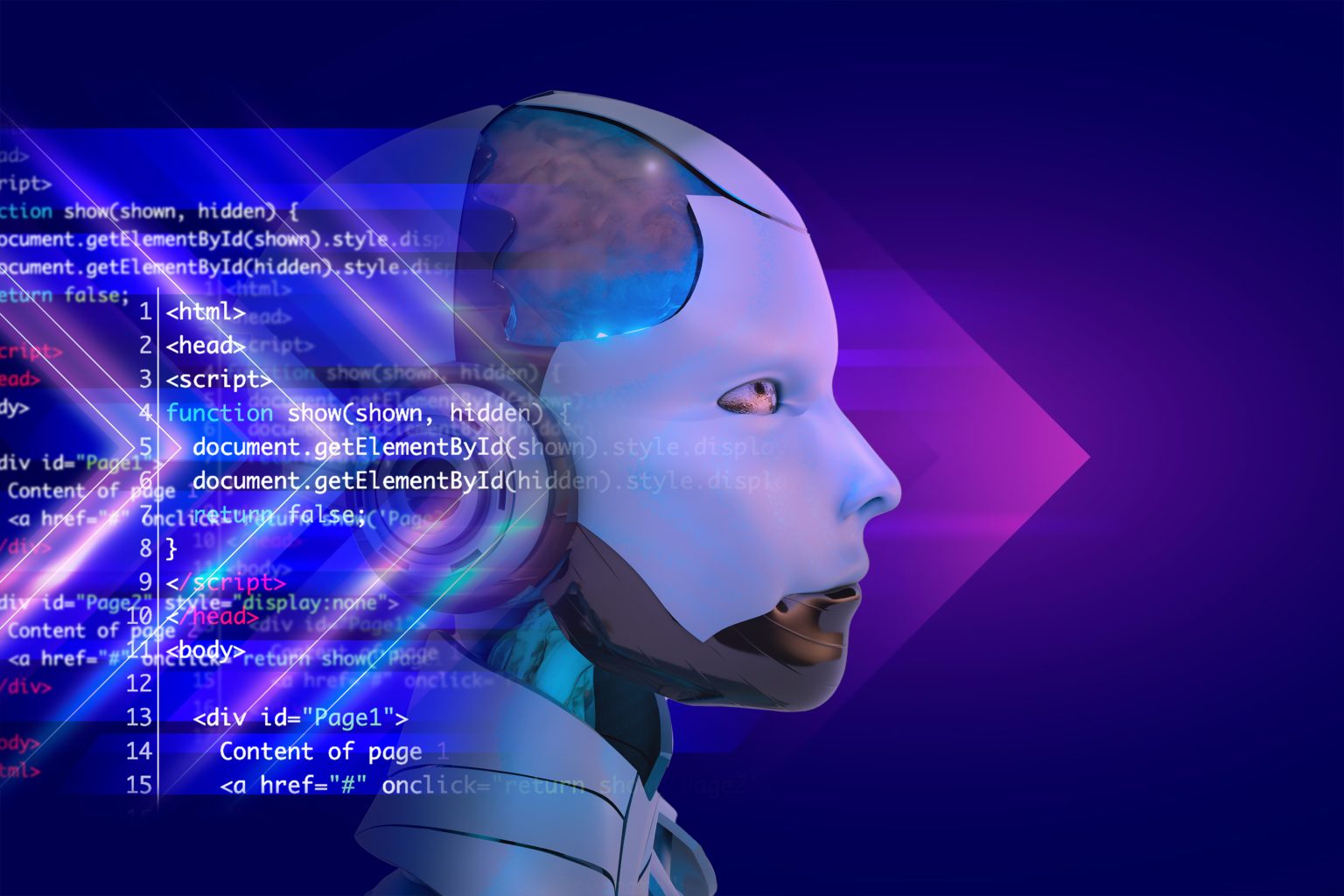Artificial intelligence (AI) has emerged as a transformative force, reshaping how we interact with technology and the world around us. From self-driving cars to intelligent chatbots and generative art, AI’s capabilities are expanding rapidly. This comprehensive guide delves into the core concepts of AI, its history, its major players, and its implications for our lives and future.
Understanding AI
When people hear the term artificial intelligence, they often conjure images of robots, autonomous vehicles, and sophisticated AI systems like ChatGPT. However, the essence of AI extends beyond these applications. At its core, AI refers to a machine’s ability to perform tasks that typically require human intelligence. These tasks can include reasoning, learning from experience, problem-solving, and understanding natural language.
A Brief History of AI

As technology progressed, particularly with the advent of more powerful computing resources and vast datasets, AI began to thrive. The 21st century has witnessed an explosion of interest and investment in AI, leading to breakthroughs that have made it a prominent fixture in our daily lives.
Defining Intelligence
Before diving deeper into AI, it’s crucial to define what we mean by intelligence. In the context of AI, intelligence encompasses the ability to learn from experiences, adapt to new situations, overcome challenges, plan for the future, and acquire new knowledge. This understanding of intelligence is central to developing systems that can effectively replicate or simulate these human capabilities.
Key Concepts in AI
To navigate the world of AI, it’s essential to understand several foundational concepts that underpin the technology.
Neural Networks
Neural networks are a fundamental building block of many AI systems. Inspired by the structure of the human brain, these networks consist of interconnected nodes (or “neurons”) that process information. Each node receives input, applies a mathematical function, and passes the output to subsequent nodes. This architecture enables neural networks to learn complex patterns from data.
The rise of graphical processing units (GPUs) has significantly advanced the development of neural networks, allowing for the rapid processing of large datasets. This capability has led to the emergence of deep learning, a subset of machine learning that utilizes multi-layered neural networks to tackle intricate problems.
AI Models
In the context of AI, a “model” refers to a specific algorithm or set of algorithms designed to process inputs and generate outputs. These models can vary widely in complexity and size, influencing the computational power required to run them. For example, large language models (LLMs) like ChatGPT are trained on extensive datasets and can perform various tasks, from generating human-like text to answering questions.
Training AI Models
Training an AI model involves exposing it to vast amounts of data. During this phase, the model learns to recognize patterns and relationships within the data. This process can be computationally intensive and may take weeks or even months, depending on the complexity of the model and the size of the dataset.
Once trained, the model can be deployed for inference, which is when it uses the knowledge acquired during training to make predictions or decisions based on new input data. Inference is typically less resource-intensive than training, making it feasible to run AI models on consumer-grade devices like smartphones.
Generative AI
Generative AI is a subset of AI that focuses on creating new content, whether it’s text, images, music, or other forms of media. Unlike traditional AI systems that may summarize or reorganize existing information, generative AI can produce entirely novel outputs based on the patterns it has learned during training.
This technology has garnered significant attention for its ability to create compelling narratives, artwork, and even music, but it’s essential to recognize that not all generated content is accurate or reflective of reality. Users must critically evaluate the outputs of generative AI systems, especially when they are used in decision-making processes.
Major Players in the AI Landscape
As AI technology continues to evolve, several key organizations have emerged as leaders in the field, driving innovation and shaping the future of artificial intelligence.
OpenAI
OpenAI is a well-known name in the AI landscape, founded with the mission of advancing digital intelligence while ensuring that AI benefits humanity. Initially established as a non-profit research organization, OpenAI has transitioned into a for-profit model, developing cutting-edge language models like ChatGPT and offering access through APIs and applications.
Under the leadership of CEO Sam Altman, OpenAI continues to push the boundaries of AI research. While the organization focuses on developing powerful models, it is also committed to addressing the ethical and societal implications of AI, ensuring responsible deployment and usage.
Microsoft
Microsoft has played a significant role in AI research and development, though its efforts have sometimes been overshadowed by other players. The company has made strategic investments in AI technology, including a notable partnership with OpenAI that powers the conversational features of Microsoft’s Bing search engine.
Microsoft’s AI initiatives span various applications, from enhancing productivity tools like Microsoft Office to integrating AI capabilities into cloud services through Azure. The company continues to innovate in AI, exploring new frontiers in machine learning and natural language processing.
Google has long been a pioneer in AI research, contributing significantly to the development of algorithms and techniques that underpin modern AI. Despite initially lagging in the commercialization of AI products, Google is now making concerted efforts to catch up, with a strong focus on large language models and AI-driven applications.
Google’s parent company, Alphabet, has invested heavily in AI research through its various subsidiaries, such as DeepMind, which has made headlines for its breakthroughs in reinforcement learning and other advanced techniques. The company is committed to integrating AI into its core services, including search and advertising, to enhance user experiences.
The Future of AI
As AI continues to evolve, its impact on various sectors is becoming increasingly pronounced. Here are some areas where AI is expected to make significant strides in the coming years:
Healthcare
AI has the potential to revolutionize healthcare by improving diagnostics, treatment plans, and patient care. Machine learning algorithms can analyze medical images, predict disease outcomes, and personalize treatment recommendations based on individual patient data. As AI becomes more integrated into healthcare systems, it could lead to improved outcomes and increased efficiency.
Transportation
The transportation sector is already experiencing the effects of AI through advancements in autonomous vehicles. AI systems are being developed to enhance safety, optimize traffic flow, and improve logistics. As these technologies mature, we may see a significant reduction in accidents and increased efficiency in transportation networks.
Education
In education, AI can personalize learning experiences for students by adapting content and assessments to individual needs. Intelligent tutoring systems can provide real-time feedback and support, enabling students to learn at their own pace. AI can also streamline administrative tasks, allowing educators to focus more on teaching and engaging with students.
Finance
AI is transforming the finance industry by automating tasks, improving risk assessment, and enhancing fraud detection. Machine learning algorithms can analyze large volumes of financial data to identify patterns and make predictions, enabling more informed decision-making for investors and financial institutions.
Ethical Considerations
As AI technology advances, ethical considerations are becoming increasingly important. Questions surrounding data privacy, algorithmic bias, and accountability must be addressed to ensure that AI systems are developed and deployed responsibly. Engaging diverse stakeholders in discussions about the implications of AI will be crucial in shaping a future where technology serves humanity’s best interests.
Conclusion
Artificial intelligence is more than just a buzzword; it is a transformative force that is reshaping our world. As we continue to explore the capabilities and implications of AI, it is essential to stay informed and engage in discussions about its role in society. The age of AI is upon us, and its impact will resonate across generations.
From its historical roots to the innovations driving its growth, AI represents a remarkable journey of discovery and development. As major players like OpenAI, Microsoft, and Google continue to lead the charge, we can expect AI to play an increasingly integral role in our lives. As we navigate this exciting landscape, let us embrace the opportunities while remaining vigilant about the ethical considerations that accompany such powerful technology.
Rear more Latest AI blogs
